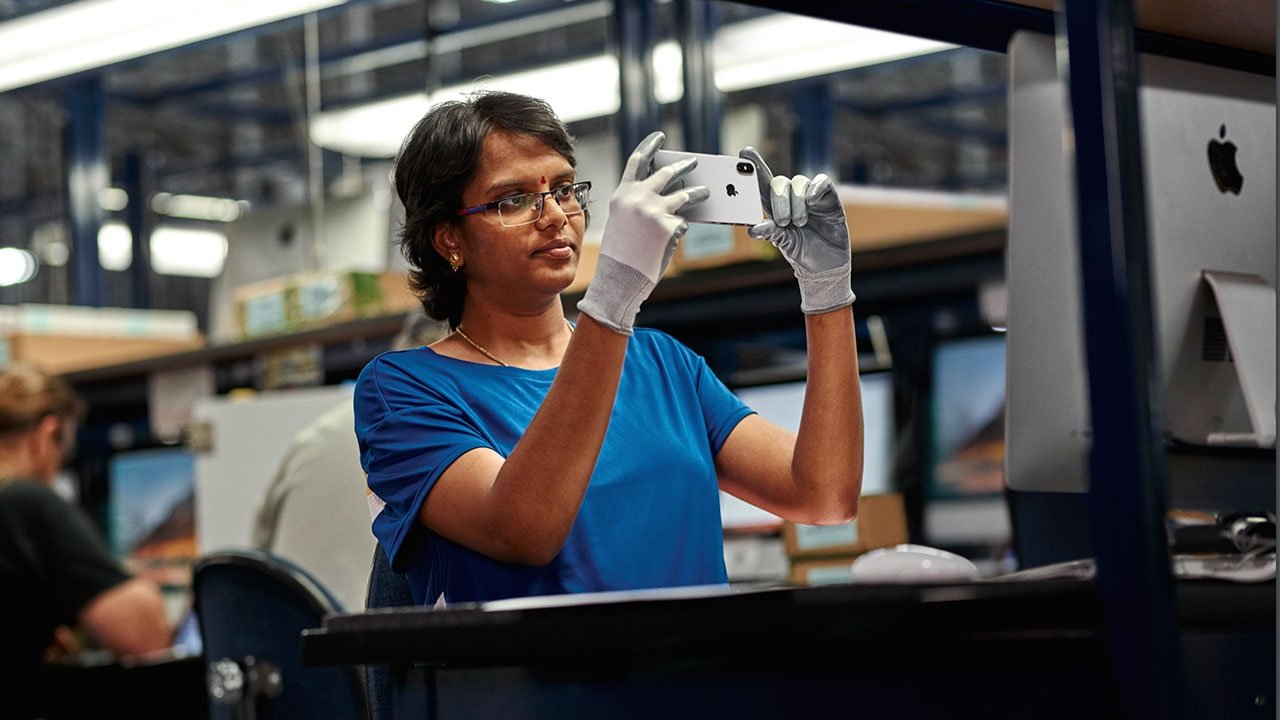

AppleInsider Staff | May 29, 2021

Article Hero Image
Last updated 3 years ago
Apple on Friday released its annual Supplier Responsibility Report for 2021, offering detailed information about labor, health, educational, and environmental initiatives throughout the company's manufacturing supply chain.
Covering progress made in fiscal 2020, this year's report (PDF link) provides a broad top-down view of Apple's sprawling supplier operations across Asia and, to a lesser extent, the U.S.
The report kicks off by highlighting figures in four key areas: labor and human rights; health, safety and education; the environment; and supplier performance. For example, Apple mapped more than 470 labor agencies in ten countries classified as "higher-risk" for labor and human rights abuses. The tech giant also polled 254,265 employees at supplier facilities about their working experience — a fraction of the estimated millions that work at partners like Foxconn.
On health, safety and education, Apple notes it was the first consumer electronics company to receive the EPA Safer Choice Partner of the Year Award and says some 1.98 million supplier employees were reached by its health and wellness education program.
In 2020, Apple conducted assessments of 842 suppliers and 279 smelter and refiners across 53 countries. All identified tin, tantalum, tungsten, gold, cobalt and lithium smelters and refiners — a segment often cited for human and labor rights abuses — submitted to third-party audits, Apple says.
Finally, Apple's environmental initiatives were once again touted, with the company noting more than 100 suppliers have committed to building products with 100% renewable energy. Over 900,000 annualized metric tons of carbon equivalent were avoided in the supply chain thanks to energy efficiency efforts, while similar programs diverted 400,000 metric tons of waste from landfills.
Sabih Khan, who leads Apple's global supply chain, in a statement said COVID-19 brought new challenges to the iPhone maker's employee equity efforts. Still, the company was able to conduct audits, hold suppliers accountable and educate employees about their rights.
"A global focus on people's health did not distract us from the essential work of holding ourselves accountable to the highest standards for labor and human rights," Khan writes. "In the few instances where our standards were not met, we moved quickly to provide remedies to all those affected — and in some cases, to suspend our business with suppliers while we took steps to prevent those violations from happening in the future. Accountability remains a crucial pillar of our work and an important driver of our progress."
For fiscal 2020, Apple recorded only nine so-called "core violations" of its supplier code of conduct, down from 17 in 2019 and 27 in 2018. According to the report, violators must immediately address the issue by making management changes and taking preventive measures to ensure the breach does not reoccur.
Today's disclosure comes less than a month after an explosive report exposed potential ties between Apple suppliers and forced labor programs suspected of being part of an alleged Chinese genocide against Uyghurs. One U.S. lawmaker called on CEO Tim Cook to clarify Apple's relationship with the reported offenders by June 15.
Follow all the details of WWDC 2021 with the comprehensive AppleInsider coverage of the whole week-long event from June 7 through June 11, including details of all the new launches and updates.
Stay on top of all Apple news right from your HomePod. Say, "Hey, Siri, play AppleInsider," and you'll get the latest AppleInsider Podcast. Or ask your HomePod mini for "AppleInsider Daily" instead and you'll hear a fast update direct from our news team. And, if you're interested in Apple-centric home automation, say, "Hey, Siri, play HomeKit Insider," and you'll be listening to our newest specialized podcast in moments.